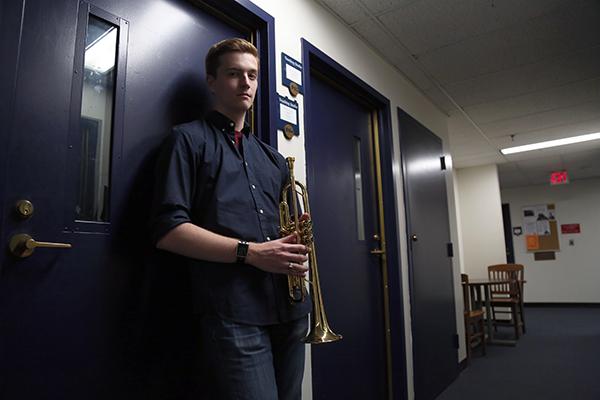Updated: April 8, 2016 at 11:57 a.m.
Student organizations will receive less up-front funding this year than in the past, members of the Student Association said.
On Monday, the SA finance committee set aside about $330,000 of its about $1 million pool of funds to distribute to student groups over the course of the next year. The change means some student organizations received smaller allocations now than in previous years, which some members said is unfair and will leave them with less funding overall.
The finance committee will put the $330,000 toward co-sponsorships, and the funds will be awarded later in the year after initial budget allowances are released, Paden Gallagher, the chair of the finance committee, said. Co-sponsorships are student organization initiatives that are at least partly funded by the SA.
Gallagher warned student organizations that most would see a “decrease in general allocations,” but that more funding would be available throughout the upcoming academic year, according to an email obtained by The Hatchet.
Gallagher said the SA focused more of its budget on co-sponsorships because organizations have a clearer picture of what the money will specifically be used for as the event date gets closer. The change comes after former SA President Nick Gumas vetoed the budget last year for leaving too many student groups with insufficient funds.
Earlier this year, members of the SA created a committee to examine how funds are distributed to student groups and find ways to improve the process. One of their major recommendations was to set aside more of the SA’s approximately $1 million budget for co-sponsorships.
“The general idea was that this year we saw a lot of groups come back for co-sponsorships with much more detailed requests than they could make during allocations and since we only have so much money to give out, it made sense to shift the focus of budgets over to that more known quantity,” Gallagher said in an email.
Gallagher said organizations who received less than funding this year shouldn’t “sweat it too much.”
“This was something that we all expected and I understand that it is very hard to deal with cuts, but there are always co-sponsorships and next year,” he said.
About $170,000 was set aside for co-sponsorships in 2007, the largest-ever amount at the time – this year’s co-sponsorship pool is a 76 percent increase.
At Monday’s SA Senate meeting, Sen. Brandon Bernier, SEAS-G, said 20 to 25 organizations have already asked to appeal their initial budget. This year, the SA will have $30,000 more than last year to allocate during the appeals process.
Students said this initial round of budget allocation is another blow to the arts community on campus. Last year, officials trimmed the music department by 40 percent as part of budget cuts. At least some arts and music organizations received significantly less initial funding than they requested.
Jack Rametta, the treasurer for the GW Jazz Orchestra, said his organization requested nearly $10,000 but were awarded $620, about half the amount they received in last year’s allocation.
Last year, the SA awarded 38 percent more funding to organizations connected to the music department, after GW made cuts in the music department.
But Rametta said now the SA “may be taking a different tack.”
Without more SA funding, he said the group wouldn’t be able to participate in concerts off-campus or buy new instruments without increasing dues or launching a new fundraising effort. He said organizations like his “fill in the gaps” left by budget cuts and help students get involved in the campus music community.
“The finance committee has a responsibility to the arts community that the University has left behind,” Rametta said.
Alyssa Paren, the general manager for GW-TV, said the group asked for $1,870 and received $800. Paren said the group was denied funding for new posters to advertise the station, camera lights and GW-TV mugs to use on their shows.
She said those items would have increased the station’s professionalism and standing on campus to “not just keep us afloat but move us forward.”
“I think for orgs that don’t require co-sponsorships it definitely wasn’t fair. They didn’t consider the true value of things. We worked really hard on our budget and to see a lot of those things that we thought were important ignored was pretty upsetting,” she said.
GW-TV plans to appeal their initial allocation this weekend, Paren said.
This post was updated to reflect the following correction:
The Hatchet incorrectly reported that Alyssa Paren is the managing director for GW-TV. She is the general manager.








